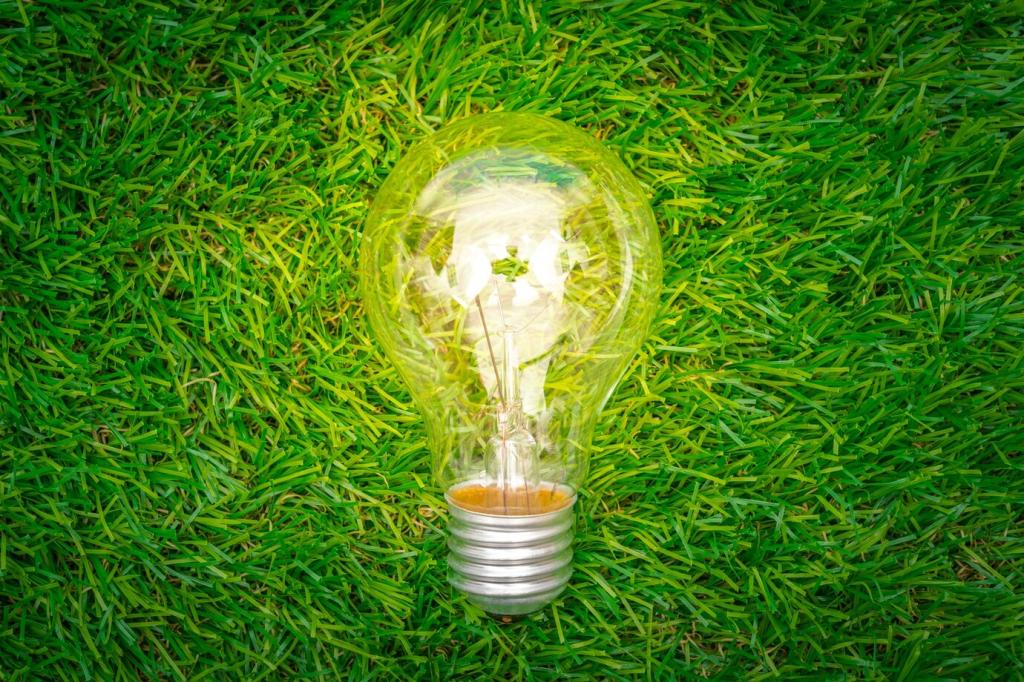
Innovations in Sustainable Home Appliances
Discover how modern advancements are transforming the way we live, making our homes smarter, greener, and more energy-efficient. Innovations in sustainable home appliances not only enhance comfort and convenience but also reduce environmental impact and energy consumption. This page delves into a variety of cutting-edge technologies and practical solutions that are redefining what it means to have an eco-friendly home.
Energy-Efficient Refrigeration
Smart Compressor Technology
Smart compressors use sensors and microprocessors to adjust their power consumption according to the cooling demand. By scaling their operation rather than running at full capacity all the time, these devices consume far less electricity, leading to substantial savings. They can dynamically respond to changing loads inside the refrigerator, such as when new groceries are added or when door openings increase. As a result, not only do they improve energy efficiency, but they also extend the lifespan of the appliance by reducing mechanical wear and tear.
Advanced Insulation Materials
Modern refrigerators are now equipped with advanced insulation materials like vacuum-insulated panels and phase-change materials. These materials significantly reduce thermal transfer, allowing refrigerators to maintain low temperatures with minimal energy input. Superior insulation ensures that less cold air escapes and less heat enters the unit, resulting in longer periods between cooling cycles. The use of such materials is a key step in reducing the overall carbon footprint of household refrigeration.
Eco-Friendly Refrigerants
The shift from traditional hydrofluorocarbons (HFCs) to more environmentally benign refrigerants is a critical advancement in refrigeration sustainability. New refrigerants, such as R600a and CO2, have much lower global warming potential (GWP) and are non-ozone-depleting. Appliances that use these substances not only conform to stricter environmental regulations but also tend to operate more efficiently and quietly, making them a smart, responsible choice for eco-conscious homeowners.
Water Conservation in Washing Machines
Precision Water Usage
Modern washing machines are designed with sensors and algorithms that determine the exact amount of water needed for each load. By considering factors like fabric type, weight, and degree of soiling, these smart machines prevent water wastage. Such precision ensures optimal cleaning results without excessive resource use, benefiting both the household budget and the environment.
Low-Temperature Washing Technology
With advancements in detergent formulations and washing machine mechanics, it’s now possible to wash clothes effectively at lower temperatures. Low-temperature washing not only saves energy by reducing the need to heat water but also extends clothing life by minimizing fabric wear. These technologies are increasingly standard, contributing to a significant reduction in household energy consumption.
Rapid Wash and Eco Cycles
Eco cycles extend the soaking and rinsing stages, enabling a thorough clean with minimal water. Rapid wash options, powered by enhanced drum movements and intelligent water management, ensure effective cleaning in less time. Both features offer homeowners the flexibility to save water and energy, regardless of the size or urgency of their laundry needs.
Solar-Powered Home Appliances
Some innovative home appliances come with built-in photovoltaic cells, allowing them to generate electricity directly from sunlight. These integrated panels are designed to complement the operation of devices such as refrigerators, fans, and even laptops, ensuring continuous functionality during daylight hours. This approach is particularly beneficial in regions with strong sunlight and frequent power outages.


Adaptive Scheduling Algorithms
Smart thermostats use predictive analytics and machine learning to develop adaptive schedules based on household routines. By anticipating occupancy patterns and weather changes, they dynamically adjust heating and cooling, ensuring no energy is wasted on empty rooms or unnecessary temperature extremes. This smart management translates to lower energy bills and reduced environmental impact.

Remote Monitoring and Control
Contemporary climate control systems enable users to monitor and adjust their home’s environment from anywhere using mobile apps or voice assistants. Instant alerts about unexpected temperature changes or energy usage empower users to act promptly, preventing waste and identifying maintenance needs early. Remote functionality also ensures optimal comfort upon arrival, without the need for continuous system operation.
Sustainable Kitchen Appliances
01
Induction Cooktops
Induction cooktops represent a major leap in cooking efficiency by using electromagnetic energy to directly heat pots and pans. Unlike traditional gas or electric stoves, induction systems transfer energy precisely to the cookware, minimizing heat loss and reducing cooking times. As a result, they use significantly less energy, offer greater safety, and help keep kitchens cooler.
02
Eco-Friendly Dishwashers
Advanced dishwashers feature resource-saving sensors, eco wash cycles, and improved filtration systems. These machines carefully measure load size and soil levels to dispense the minimum necessary amounts of water and detergent. Newer models also reuse heat from previous cycles for drying, further minimizing resource consumption without compromising performance or hygiene standards.
03
Appliance Longevity and Modular Design
Leading manufacturers are now designing appliances for longer life spans, enabled by modular construction that facilitates easy repair and upgrade. Instead of discarding an entire unit due to a minor malfunction, owners can simply swap out malfunctioning parts. This approach reduces electronic waste and encourages investment in higher-quality, more durable products.
Waste Reduction Technologies
Automated countertop composters turn kitchen scraps into nutrient-rich compost in just a few hours or days. Using controlled heat, aeration, and mixing, these appliances help reduce organic waste and provide a sustainable resource for gardening. With odor control features and compact designs, in-home composters are making sustainable waste management accessible in urban environments.


Centralized Energy Management Platforms
Centralized platforms collect data from all connected appliances, enabling comprehensive monitoring and optimization of home energy usage. Users can identify energy-intensive devices and adapt their habits or schedules for greater efficiency. This overview ensures that all systems work in harmony, minimizing waste and maximizing utility.

Interoperable Smart Devices
Current innovations prioritize interoperability, allowing various brands and types of appliances to function together seamlessly. This flexibility helps homeowners create truly customized, scalable ecosystems that grow as their needs evolve. Upgrades and new features can be introduced at any time without incompatibility risks, increasing the longevity and usefulness of the entire home system.

Automated Demand Response
Through IoT integration, appliances can automatically respond to external signals such as grid demand, electricity price fluctuations, or renewable energy generation peaks. For instance, washing machines or dishwashers may delay operation until solar output is highest or when electricity is cheapest. Automated demand response supports grid stability and saves money for homeowners, aligning daily usage with environmental priorities.
